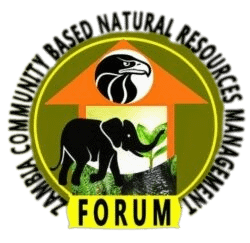ZAMBIA CBNRM FORUM PARTICIPATES IN INAUGRAL AGROECOLOGY CONFERENCE
The Inaugural Agroecology conference calls for integration of Agroecology in policies and programs for a more sustainable, equitable and resilient food system and this was retaliated that stakeholders collaboration inclusive are government, civil society organisations, private sectors, communities, traditional leadership to work together Agroecology through incentives, research findings, capacity building programs ,Climate change mitigation and adaptation strategies ,the use of local and indigenous knowledge and improvement of agriculture systems in a more sustainable approach. An important aspect has been to improve a develop balance between Agroecology technology, agroecology trade and markets, policy and legislation framework, farm managed seed system to improve the conservation of indigenous seed banks and for further research build ups, women, youths and social inclusion in agriculture and conservation and pest /disease management.
The Break Away Sessions had interesting Topics that gave full insight and a foundation for the development of Recommendation after the two days deliberation these group sessions Topics included: Agroecological production technologies; Agroecological Trade and markets; Policies and legislation frameworks around Agroecology; Farmer managed seed systems and biodiversity conservation; Women and youth in agriculture; Information and networking Integrated pest and disease management for crops and animals

KEY RECOOMENDATIONS DEVELOPED
- Harmonise strategies and policy implementation frameworks (we allow policy to drive and spear head research) and strengthen the existing policies.
- To identify Agroecology champions these include government line ministries, Civil society organisations, traditional leaders and other key actors including the community who are custodians of the Natural Resources.
- Increased Advocacy and Lobbying by increasing the voice that integrates Agroecology to address climate change, degradation and ecosystem destruction.
- Enhanced linkages on local and international markets for communities which builds into Regional Cooperation.
- Use Indigenous Resources for framing practices and sustainable food systems and productions.
- Clear policy frameworks and directions for promoting indigenous seed usage and banks/storage through Increased Financial capacity to establish and develop infrastructure for seed aggregations.
- Development of Data Hubs for Analysis and accurate information dissemination to grassroot structures and the public at large .
- Improved knowledge management and co creation scaled up and out to all areas of Zambia targeting mostly the marginalised groups and individuals
- Mitigations and Adaptations support to address the adverse impacts of Climate Change
- Evidence building using tools and research and provide feedback to the communities on lessons learnt
- Increased media engagement and support(social, print etc)


